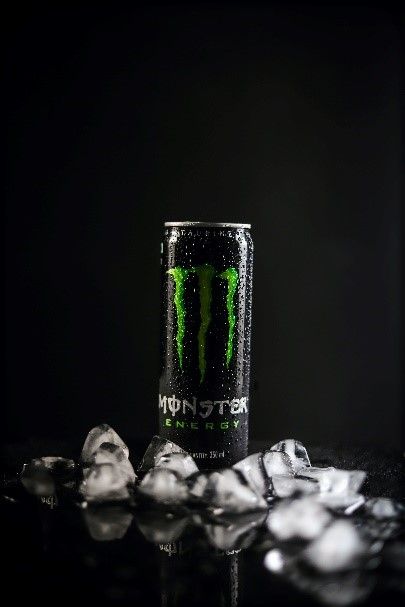Are biscuits and confections similar to nutritional supplements in liquid form? This was the question that the Zambian Trade Marks Registry had to deal with the recent case of Swiss Bake Limited v Monster Energy Company, 25 January 2023.

Image source: Unsplash
The opposition
Swiss Bake Limited, a Zambian company, applied to register the trade mark AMAZON MONSTA CREAMS in class 30 covering "confectionery and biscuits". This application was followed by the US-based energy drink company Monster Energy filing an opposition against this trade mark application. The opposition was based on Monster Energy's prior registrations for trade marks containing the word "Monster," such as "Monster Rehabituate" and "Monster Rehab," in different classes (5, 30, and 32) for nutritional supplements, drinks, and tea.
More on the opponent's case
Monster Energy claimed they were one of the world's largest energy drinks companies and had a huge portfolio of trade marks. They claimed to have used the mark Monster worldwide for over twenty years. The company stated, "We've sponsored the Mercedes Formula One team and the Ultimate Fighting Championship (UFC). Our mark is a well-known mark as per Article 6 bis of the Paris Convention."
Regarding the trade marks, Monster Energy argued that they were similar and would cause confusion among consumers. They also suggested that Swiss Bake may have acted in bad faith by adopting a name similar to their "Monster" reputation.
The applicant's response
This was simple – there will be no confusion, because one party makes biscuits and the other drinks. Swiss Bake argued that Monster Energy was trying to stifle competition.
Well-known marks
The hearing officer made the point that Article 6 bis of the Paris Convention has not been adopted in Zambian law. But an opposition is possible under sections 16 or 17 where the goods are the same or similar.
Case law
The hearing officer made the point that similarity or dissimilarity cannot be determined solely by class. In the UK case of Jellineks' Application (''Panda'') 63 RPC 59 the court said the following should be considered:
- the nature of the goods;
- the respective uses of the goods; and
- the trade channels through which they are sold.
In the later UK case of British Sugar Plc v James Robertsons & Sons Ltd (1996) RPC 281, Judge Jacob listed these factors:
- the uses of the goods or services;
- the users;
- the physical nature of the goods;
- the trade channels;
- with self-serve items, the places where they are found in supermarkets; and
- the extent to which the goods are competitive.
The hearing officer did make the point that the Supreme Court of Zambia also considered these factors in the case of Trade Kings Limited v Unilever & Others , SCZ Judgment No. 2 of 2000 ZLR.
Goods of the same description?
The hearing officer decided that confections and biscuits are not similar (goods of the same description) to nutritional supplements in liquid form, or non-alcoholic beverages like tea. This is because they don't have the same physical nature (one is liquid, the other solid), they are not competing or supplementary goods, and they are not found on the same shelves in stores. There was a reference to the EU case of Monster Energy Company v OHIM T-736/16, which held that there is no similarity between coffee-based beverages and confectionery.
No confusion
With no similarity of trade marks or goods there was no likelihood of confusion, and the opposition failed.
New legislation is in the pipeline
Zambia's Trade Marks Act Chapter 401, is seriously old, it dates all the way back to 1958 It is in fact, based on the UK Trade Marks Act 1938. Unsurprisingly, Zambian trade mark law is in the process of being updated. For those of you who are familiar with the trade mark application process, will know that it is not possible to file trade mark applications in service classes i.e. protection can only be obtained in the goods classes being 1 – 34. One of the exciting changes is definitely the introduction of service classes. Very soon (we expect), it will be possible to file trade marks in the service classes. This will ensure comprehensive protection of clients' trade marks in Zambia. Keep an eye out for updates from us!
The content of this article is intended to provide a general guide to the subject matter. Specialist advice should be sought about your specific circumstances.

